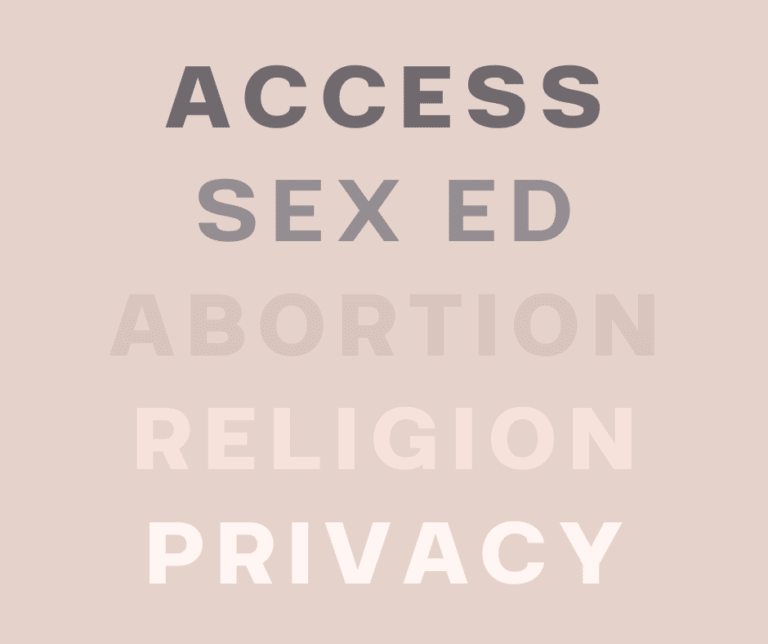
Reproductive Justice: Young, Rural Voices
By Rebecca Stern
“Widespread clinic closures are most likely to impact rural, low-income populations and people of color, many of whom face drive times of several hours just to reach the nearest facility, according to CNN’s analysis.”
As a 19-year-old intern at the Center for Rural Strategies, part of my daily routine was reading the news to see the latest mention of rural in regard to reproductive rights and justice after the overturn of Roe versus Wade. Most of the time, it came down to one sentence, much like the one above.
I also noticed that when rural people were interviewed, they never reflected the rural young adults I interacted with in Whitesburg, Kentucky.
My daily searches — and the juxtaposition with my experience in Whitesburg — brought me to this project: interviewing rural young people across the country how the overturn of Roe v. Wade has affected them. I listened to stories of how their lives have been changed (and not changed) by the overturn of Roe v. Wade and their perspective on contraceptive access, abortion access, reproductive justice, and sex education in their communities.
Throughout the interviews, six key themes emerged:
1. Sex education
In rural areas, sex education is not as comprehensive, nor inclusive of LGBTQIA+ or disabled people.
2. Religious influence
The religious influence of Christianity on rural areas is deeply felt by rural youth in reproductive healthcare matters, especially ones who aren’t Christian or religious at all.
3. LGBTQIA+ and Disabled face greater barriers
Rural youth who are LGBTQIA+ and disabled face even greater barriers to access necessary healthcare, both in their education, actual treatment, and the autonomy that the justice system has ruled that they have over their own body and their capacity to take care of children.
4. Less privacy in rural communities
In rural small towns, less privacy is afforded to people trying to access reproductive healthcare. Privacy culture also limits what is allowed in “polite” conversation.
5. Long distances to care
Even with Roe in place nationally, people in many rural communities had to travel long distances for reproductive care.
6. Fear and shame
Every youth and many youth practitioners I talk to bring up fear and shame in the wake of the overturn of Roe v. Wade. With knowledge coming from social media instead of trusted sources and the future of reproductive healthcare uncertain from state to state, young people are afraid for their and their community’s futures. Every young person also expressed feeling shame and stigma around sex and accessing contraceptives in public.
We’re beginning to share some of these stories today. These were gathered in the days and weeks after the Dobbs decision. We want to hear more from rural young people and their allies as the fight for reproductive justice continues in the United States. Have a story to share? Let’s talk.
Rebecca Stern is a second-year Robertson Scholar at UNC Chapel Hill studying Public Policy and Global Gender Studies. This past summer, she interned at the Center for Rural Strategies.
Stories
During the summer of 2022, Rebecca Stern talked with young people from various rural communities. We will continue to add and share these stories. We want to hear from you: would you like to add your voice to this project? Email us.
Phoebe Wagner, Kentucky + NYC
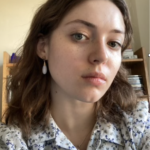 My family is Jewish and in Jewish tradition, there’s a lot less emphasis placed on fetuses as babies or life forms. So, in my immediate family, the sort of understanding is that elective abortions are totally viable and it’s not at all moral quandary, but when you’re living as a Jew in the south, you’re adhering to Christian moral codes. There is no way to opt out of that because the community and the political scene, even more so than the community, is centered around Christian moral codes and the laws of the south, especially my community. There is no separation of church and state. It’s almost impossible to imagine a rural Kentucky that is separated from Christianity politically. So if you’re a Jew in the South, or if you are an atheist in the south or someone of a community that believes that a fetus is not a living being, then that that is not really something that is accepted.
My family is Jewish and in Jewish tradition, there’s a lot less emphasis placed on fetuses as babies or life forms. So, in my immediate family, the sort of understanding is that elective abortions are totally viable and it’s not at all moral quandary, but when you’re living as a Jew in the south, you’re adhering to Christian moral codes. There is no way to opt out of that because the community and the political scene, even more so than the community, is centered around Christian moral codes and the laws of the south, especially my community. There is no separation of church and state. It’s almost impossible to imagine a rural Kentucky that is separated from Christianity politically. So if you’re a Jew in the South, or if you are an atheist in the south or someone of a community that believes that a fetus is not a living being, then that that is not really something that is accepted.
Politically, [abortion]’s not a thing to talk about, in terms of privacy culture and politeness culture. You just don’t go there.
My mom openly had an abortion, when I was seven years old. But she didn’t tell my family, she wrote an article about it and it was published online… my mom was very poor. My family couldn’t afford another child and it was an unplanned pregnancy. ..people are having this experience, but there’s a culture especially in rural Kentucky where you cannot talk about it…she received this feedback from women all across Appalachia, just saying like, thank you for speaking out, thank you for telling this story, but we could never do that.
I also think poverty is such a factor. My family, we were below the poverty line. We lived on a farm, so we were feeding ourselves, but that was as much as we could do. It’s dangerous to have a child in that situation. I don’t know what my life would be like now if my mother had this child.
We had some [sex education] in fifth grade, it was more so what will happen to you in puberty? It was not about sex. It was how to deal with like hormonal changes and stuff. It wasn’t even abstinence only, it was just not on the table, which for fifth graders makes sense. But it was notably absent from any sex ed that we received and it was also boys and girls in two separate rooms… I went to this public school in a nearby urban area, 50 minutes away from my home…I went to high school there all four years and we didn’t get any sex ed there either. It’s not just a rural issue. It’s an everywhere issue as far as I can tell.
[The overturn] ultimately does not affect my love of Kentucky. I think my love for Kentucky is just that strong. I think that living in Kentucky versus New York feels very different in terms of reproductive accessibility. I’m lucky to have that reproductive accessibility in New York, but I don’t like New York as much as I like Kentucky and I would rather live here. And I think that people will be resilient, especially people who have had to go through more struggles. It’s wrong and it’s bad, but also, this is not the beginning of something new. This is a continuation.
My mom traveled 200 miles round trip for her abortion. She went to, I think, Louisville. That was the last abortion clinic in Kentucky for years before Roe v. Wade was overturned…
I’m having trouble with the financial aid at my school and I’m concerned that I won’t be able to continue being a student there. But if I were to move back to my community, I have no idea where the nearest solution would be.
Cynicism is an easy trap to fall into. And I struggle constantly not, but Roe v. Wade is just one more thing. It’s not a new thing…
It’s also easy for me to have a cop out because I go to school in New York. And if I needed an abortion, then I could easily get one in New York.
And there are people, especially poor people and people of color who don’t have the opportunity to be cynical because they don’t have a fall back.
Politically, [abortion]'s not a thing to talk about, in terms of privacy culture and politeness culture. You just don't go there.
Phoebe Wagner
Kelby Greene, Tennessee and New Hampshire
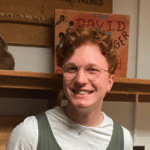 As a non-binary person, I identify with the label of trans and I can’t access HRT [Hormone Replacement Therapy] here… Planned Parenthood does [HRT] for free…for all types of people here who are trying to access healthcare, which that’s what an abortion is, that’s what contraception is, it’s healthcare, just as HRT, just as gender affirming care.
As a non-binary person, I identify with the label of trans and I can’t access HRT [Hormone Replacement Therapy] here… Planned Parenthood does [HRT] for free…for all types of people here who are trying to access healthcare, which that’s what an abortion is, that’s what contraception is, it’s healthcare, just as HRT, just as gender affirming care.
A lot of rural areas suffer from a lack of access to healthcare. This is just putting a nail in that coffin when you shut down a women’s health center or Planned Parenthood or a reproductive rights center. Having gone to several of the [Reproductive Rights] rallies, the rhetoric often skewed towards a lot of discussion of Cis-womanhood. Unfortunately, that meant that there were a lot of non-binary and trans people excluded from that conversation…There was this one sign that I saw that was meaningful to me. It said, “ I’m with her,” and “her” was X-ed out and it said “them”.
As a trans person, I have a lot of fear of living in the place that I have for a long time recognized [as] my home…I’ve had moments where I’m like, okay, do I want to live in the place that I want to live, which is Southern Appalachia, or do I want to live in a way that I want to live?
Which is to be the person and the gender expression that I want. And it’s hard. It makes me cry at night because it hurts to feel rejected by the place [that’s] supposed to be your home.
My sex ed: the school nurse squirted a syringe of water at us, and then made us dig around for an M & M in a bucket of rice. The rice represented sperm and the M & M was supposed to be an egg. And this is how you get pregnant. The syringe of water was supposed to be ejaculation, which was just weird and uncomfortable. And here are pictures of STDs. That was our actual understanding.
[My friend made] a film about queer sex and it was talking about, “Here’s why even if there’s no risk of pregnancy, you should use protection of some kind”.
RA: Was the queer sex ed video shared widely in the school?
No. The executive director of our school did not want us scaring off the parents of elementary school students.
The middle school [I was zoned for] was known for regularly having a lot of teen pregnancies. Contraception is available…The problem for young people is that they are so impacted by their relationship with their parents…If you can’t drive, you can’t drive alone to a Food City to buy contraception. If you don’t have money, you can’t buy contraception. You can’t drive to a Planned Parenthood clinic. You might not have that option because you don’t have the privacy. If you said, “Hey mom, I would like to buy condoms,” there’s going to be a point leveraged against you often, culturally…There’s all that stuff that was accessible, but it was not safe.
If the library could have a box of condoms, I’m sure that would help because young people are not stupid. Young people sometimes make choices that they’re not fully informed by because laws and legislators prevent them from being informed.
Our school systems and our local governments and our state governments and our federal government now are ignoring the real needs of young people who don’t want to risk their lives. No, they don’t want to risk their futures, but they want to live their lives and be free to be who they are.
Hannah, Vermont
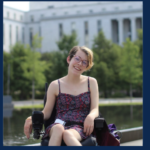 If ever want to get an abortion, like it’s very, like, I don’t know what the process is. Being a person with a physical disability, the medical world is like a very nuanced kind of weird experience because a lot of doctors don’t understand how to communicate with you because they see you as like something that needs to be fixed. I’ve had like, not great doctors, in the past because of that.
If ever want to get an abortion, like it’s very, like, I don’t know what the process is. Being a person with a physical disability, the medical world is like a very nuanced kind of weird experience because a lot of doctors don’t understand how to communicate with you because they see you as like something that needs to be fixed. I’ve had like, not great doctors, in the past because of that.
Riley, 16, Salem, Oregon
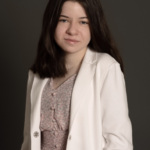 I identify as a woman, I identify as part of the disability community. I also am bisexual. So that’s like an added layer on top of everything. I’ve been pretty involved in emergency management and public health for like the past couple of years and seeing how quickly things can change simply because of justices who live across the country, who don’t have public health education, seeing how quickly they can make a decision that influences everybody in our country terrifies me. It terrifies me knowing that they can make that decision about a lot of other things regarding same sex marriage, regarding healthcare, for people with disabilities, that it can be on a state basis. There will be no safe place for me to go.
I identify as a woman, I identify as part of the disability community. I also am bisexual. So that’s like an added layer on top of everything. I’ve been pretty involved in emergency management and public health for like the past couple of years and seeing how quickly things can change simply because of justices who live across the country, who don’t have public health education, seeing how quickly they can make a decision that influences everybody in our country terrifies me. It terrifies me knowing that they can make that decision about a lot of other things regarding same sex marriage, regarding healthcare, for people with disabilities, that it can be on a state basis. There will be no safe place for me to go.
We want to hear from you
We plan to share more stories from across the country. Would you like to add your voice to this project? Email us.
Articles + Resources

Analysis: Rural Voters Help Protect Reproductive Rights
Reproductive rights turned out to have an outsized influence on some of the midterm races and ballot measures, including those decided by rural voters. Read more …
Hear Rebecca Stern talk about reproductive justice with Whitney Kimball Coe on Everywhere Radio. Listen …








